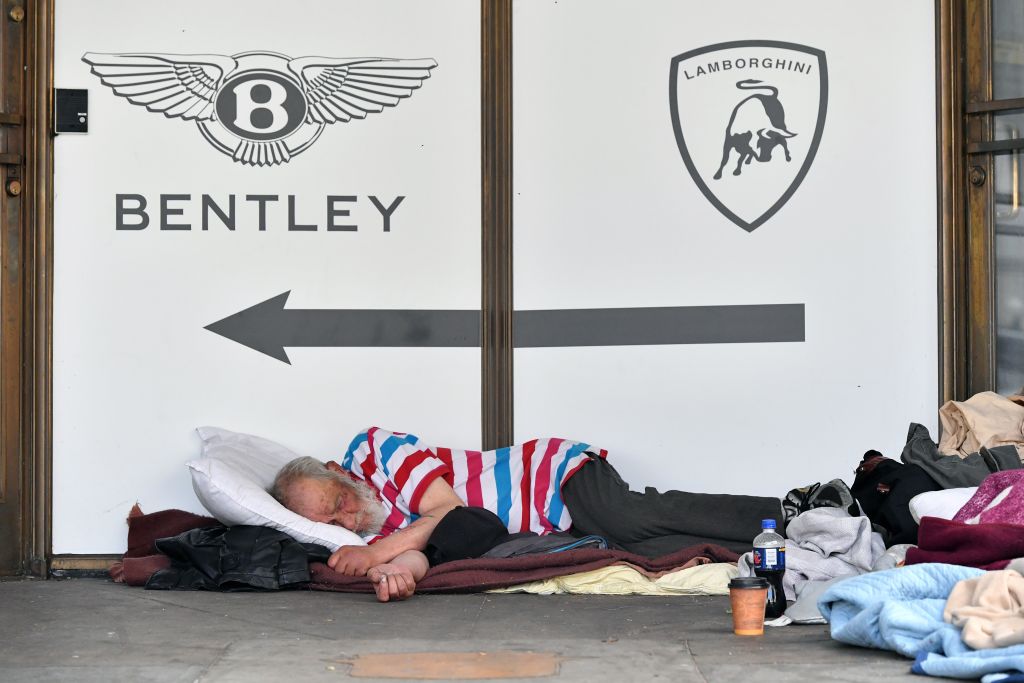What are 'copycat layoffs'?
They say imitation is the sincerest form of flattery — just not when it comes to job cuts


A free daily email with the biggest news stories of the day – and the best features from TheWeek.com
You are now subscribed
Your newsletter sign-up was successful
It's no secret that tech companies are hurting. But might the almost-incessant slew of industry layoffs have more to do with mimicry than money? Here's everything you need to know:
What are 'copycat layoffs'?
When executives see their counterparts at other companies making job cuts, they'll oftentimes robotically follow suit. It's a practice Stanford University professor Jeffrey Pfeffer has termed "copycat layoffs," and it explains much of the en masse firing that has plagued the tech (and media) industry in 2022 and 2023.
"The tech industry layoffs are basically an instance of social contagion, in which companies imitate what others are doing," Pfeffer told Stanford News in December. "If you look for reasons for why companies do layoffs, the reason is that everybody else is doing it. Layoffs are the result of imitative behavior and are not particularly evidence-based.
The Week
Escape your echo chamber. Get the facts behind the news, plus analysis from multiple perspectives.

Sign up for The Week's Free Newsletters
From our morning news briefing to a weekly Good News Newsletter, get the best of The Week delivered directly to your inbox.
From our morning news briefing to a weekly Good News Newsletter, get the best of The Week delivered directly to your inbox.
Why do copycat layoffs happen?
In many instances, corporations use a broader deluge of layoffs to disguise the impetus of their own downsizing. Indeed, as Annie Lowrey writes for The Atlantic, "[s]hedding employees when everybody else is doing it avoids drawing public scrutiny to or creating reputational damage for a given firm." Workforce reductions tend to signal trouble at a particular company or corporation — but if a "firm downsizes when everyone else is doing it, the public seldom notices and investors seldom care."
Copycat layoffs "also let executives cite challenging business conditions as a justification for cuts, rather than their own boneheaded strategic decisions," Lowrey continues. CEOs can play the decision off as having nothing to do with overhiring or mismanaged priorities on their part — it's just the way things are right now. I mean, everyone is doing it! Employees and shareholders ask fewer questions, morale (sometimes) takes less of a hit, and, as Forbes' Jack Kelly points out, higher-ups can "prune the low performers without worrying about being accused of discrimination or biases."
Further, companies tend to "take other firms' hiring and firing decisions as a kind of market intelligence," Lowrey goes on. "Even when a company's own financials appear sound, it may interpret a competitor's layoff announcement as a sign of worsening conditions." The instinct to follow suit is almost primal — "Humans imitate other humans. We copy what other people do," Pfeffer told Lowrey. "These tech companies copied one another in hiring on the way up, and now they're copying each other in laying off on the way down."
Indeed, while the trajectory of the economy is surely playing a role in layoffs, a lot of these choices are likely emotionally driven, psychiatrist Dr. Yalda Safai told Fox Business. "Feelings are very powerful. We underestimate that because we think that we're intelligent creatures, so we shouldn't be a victim of our own feelings and instead should go by what our brain is saying," she said. "But that's not always the case."
A free daily email with the biggest news stories of the day – and the best features from TheWeek.com
So are these layoffs indicative of a broader economic trend?
In Pfeffer's eyes, not necessarily. An economic downturn might very well be on the horizon, but that's probably not why a lot of these companies are cutting jobs. "Could there be a tech recession? Yes. Was there a bubble in valuations? Absolutely. Did Meta overhire? Probably. But is that why they are laying people off? Of course not," Pfeffer told Stanford News. " Meta has plenty of money. These companies are all making money. They are doing it because other companies are doing it."
Are layoffs always the best option?
In general, layoffs are a bad business decision, Pfeffer says. They fail to solve the underlying problem, "which is often an ineffective strategy, a loss of market share, or too little revenue," and oftentimes do not cut costs, "as there are many instances of laid-off employees being hired back as contractors, with companies paying the contracting firm." Further, severance packages are expensive, and it is hard to quantify the resulting hit to the morale of surviving employees.
For those who are let go, the knock-on effects may be even worse — studies suggest it takes displaced workers an average of two years to recover from the "psychological trauma of losing a job," Sandra Sucher and Marilyn Morgan Westner write for Harvard Business Review. The risk of suicide increases by 1.3 to 3 times, the risk of depression doubles, and the risk of substance abuse quadruples.
Are there other options for struggling companies?
Especially in times of temporary hardship, business leaders shouldn't discount strategies like furloughs and pay cuts. Though still not ideal, both tactics distribute pain across the company as a whole rather than dumping it onto a smaller group of people. As Pfeffer said: "Instead of giving 100 percent of the pain to 10 percent of the people," give "100 percent of the people 10 percent of the pain."
Quick-thinking execs might also use an economic downturn to their advantage by choosing to hire rather than fire — it's possible to pick up more than one game-changing employee in doing so.
Brigid Kennedy worked at The Week from 2021 to 2023 as a staff writer, junior editor and then story editor, with an interest in U.S. politics, the economy and the music industry.
-
 Political cartoons for February 7
Political cartoons for February 7Cartoons Saturday’s political cartoons include an earthquake warning, Washington Post Mortem, and more
-
 5 cinematic cartoons about Bezos betting big on 'Melania'
5 cinematic cartoons about Bezos betting big on 'Melania'Cartoons Artists take on a girlboss, a fetching newspaper, and more
-
 The fall of the generals: China’s military purge
The fall of the generals: China’s military purgeIn the Spotlight Xi Jinping’s extraordinary removal of senior general proves that no-one is safe from anti-corruption drive that has investigated millions
-
 The rise of the world's first trillionaire
The rise of the world's first trillionairein depth When will it happen, and who will it be?
-
 The surge in child labor
The surge in child laborThe Explainer A growing number of companies in the U.S. are illegally hiring children — and putting them to work in dangerous jobs.
-
 Your new car may be a 'privacy nightmare on wheels'
Your new car may be a 'privacy nightmare on wheels'Speed Read New cars come with helpful bells and whistles, but also cameras, microphones and sensors that are reporting on everything you do
-
 Empty office buildings are blank slates to improve cities
Empty office buildings are blank slates to improve citiesSpeed Read The pandemic kept people home and now city buildings are vacant
-
 Why auto workers are on the brink of striking
Why auto workers are on the brink of strikingSpeed Read As the industry transitions to EVs, union workers ask for a pay raise and a shorter workweek
-
 American wealth disparity by the numbers
American wealth disparity by the numbersThe Explainer The gap between rich and poor continues to widen in the United States
-
 Cheap cars get run off the road
Cheap cars get run off the roadSpeed Read Why automakers are shedding small cars for SUVs, and what that means for buyers
-
 Vietnamese EV maker VinFast wows with staggering Nasdaq debut
Vietnamese EV maker VinFast wows with staggering Nasdaq debutSpeed Read Can the company keep up the pace, or is it running out of gas?
